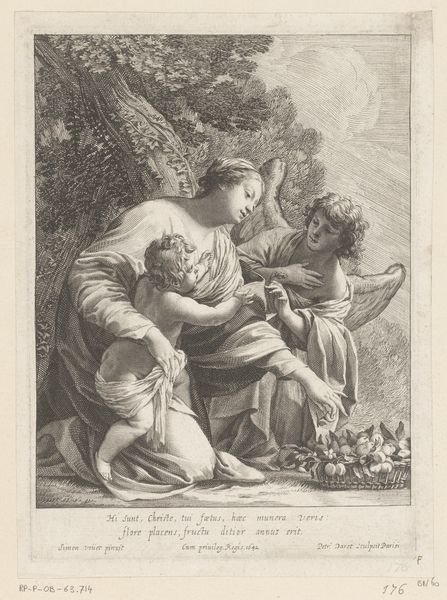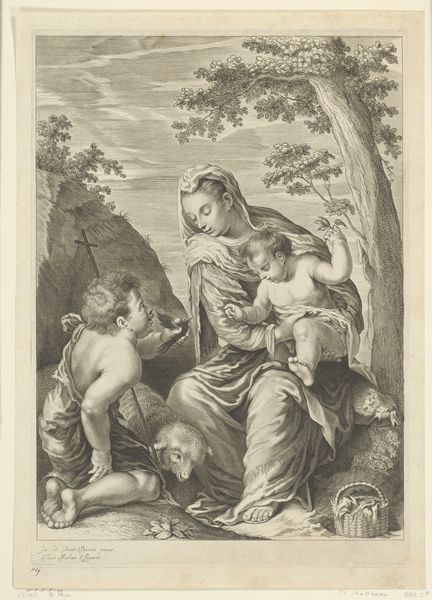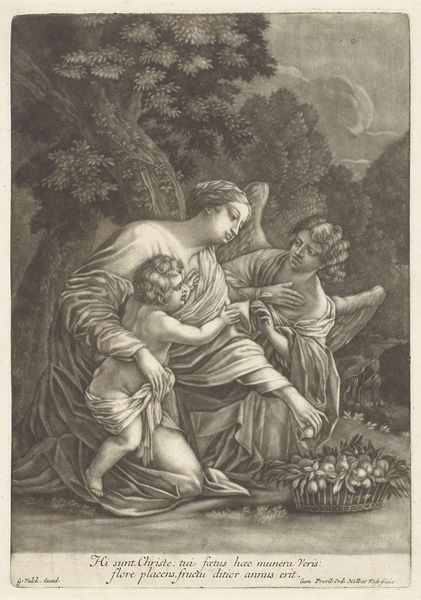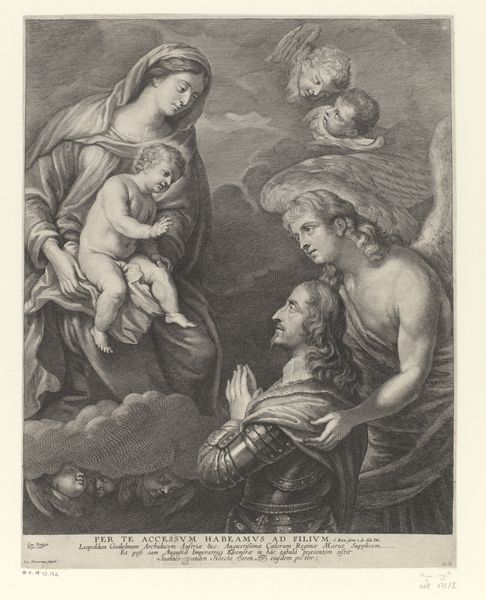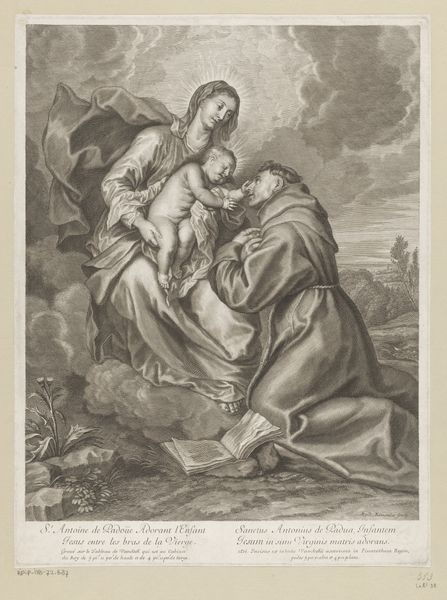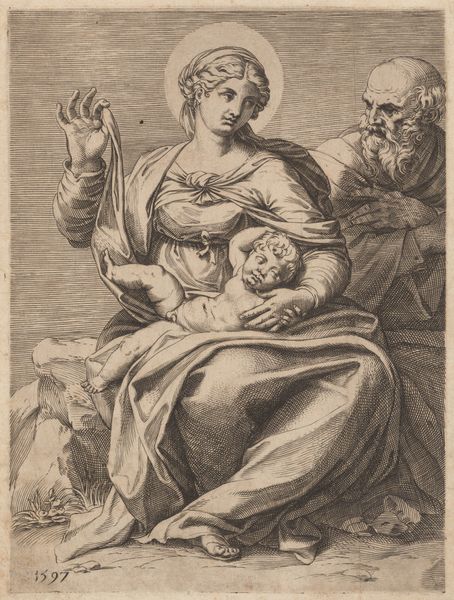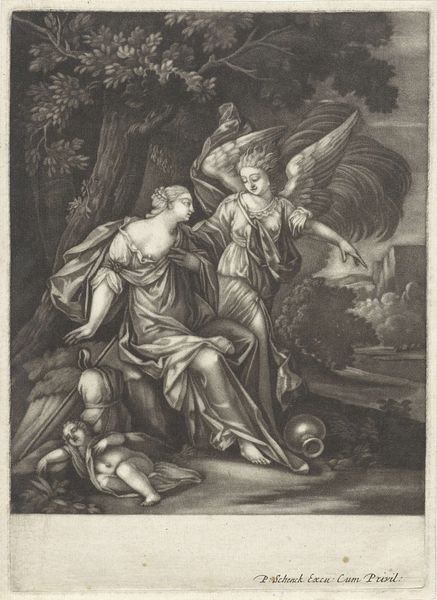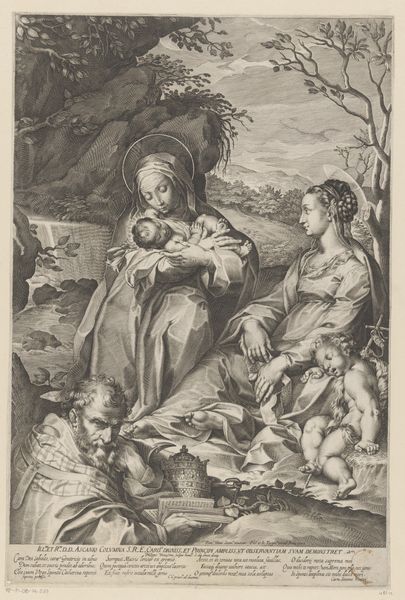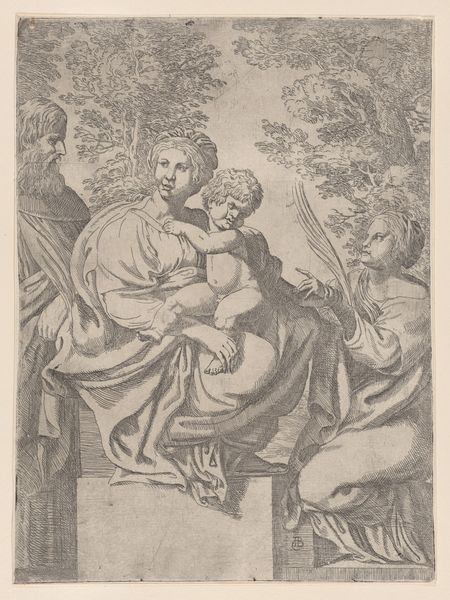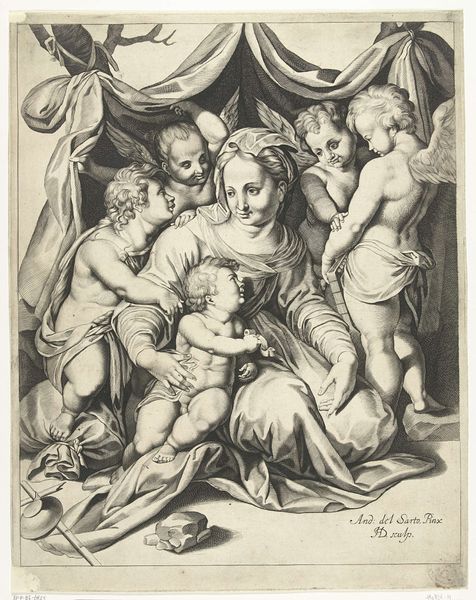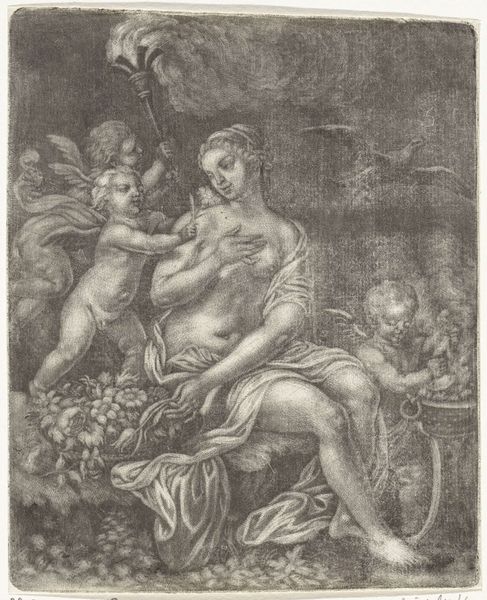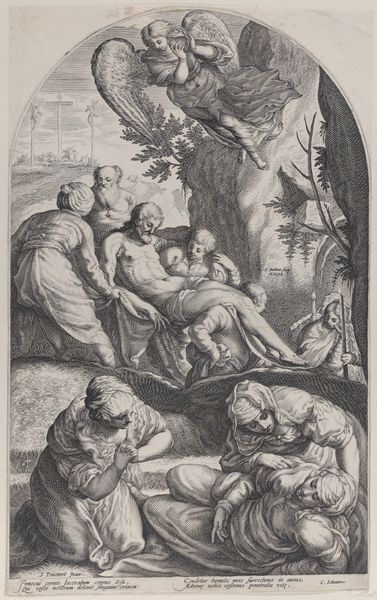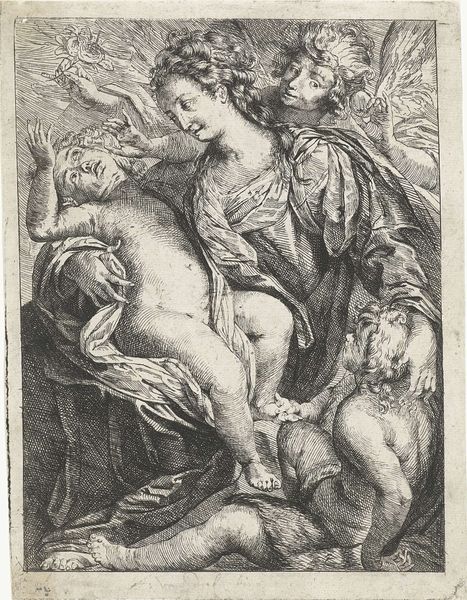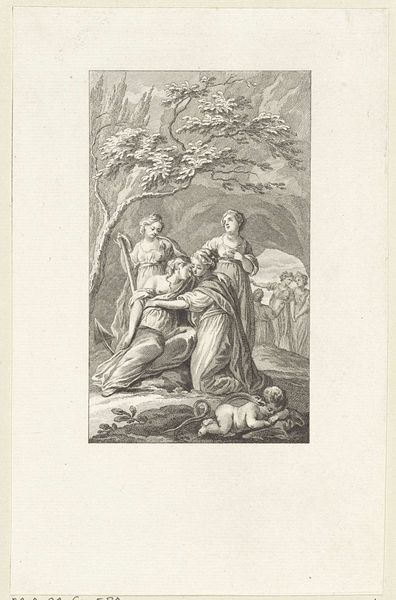
print, engraving
#
baroque
# print
#
old engraving style
#
figuration
#
portrait drawing
#
history-painting
#
engraving
Dimensions: height 401 mm, width 296 mm
Copyright: Rijks Museum: Open Domain
Editor: This engraving, "Heilige Familie met Johannes en Elisabeth," created sometime between 1600 and 1672 by François Langot, has an impressive level of detail, especially given that it is just a print. There is a peaceful quality about it. What details strike you, especially when considering the period it was made in? Curator: Given the period, I immediately think of the immense power the Catholic Church held, both spiritually and politically. Images like this, depicting the Holy Family, were carefully crafted and widely disseminated via prints to reinforce specific doctrines and family values. Notice how Mary is centrally placed, radiating calmness and control. Consider who this image was made for - and how images depicting ideal families reinforced existing social structures and expectations. Does the somewhat idyllic depiction conceal more complex societal tensions? Editor: That makes sense. The ideal family becomes a tool for social control, interesting. I also noticed the contrast in textures, the smooth skin of the figures compared to the rough rocks in the background. Curator: Absolutely. This contrast draws the eye, highlighting the idealized figures against a natural, almost wild setting. In many ways the Baroque aesthetic played into creating visual cues. Do you consider it may serve to elevate them further, suggesting their divine status within the natural world? These visual choices weren’t accidental; they served the interests of powerful institutions. Editor: So the art is working on multiple levels, reinforcing power structures while appearing devotional. That’s a complex interaction I hadn't fully considered. Thank you. Curator: Indeed. Art acts as a historical agent. By looking closely we learn much more about those who commissioned, made, and used it.
Comments
No comments
Be the first to comment and join the conversation on the ultimate creative platform.
